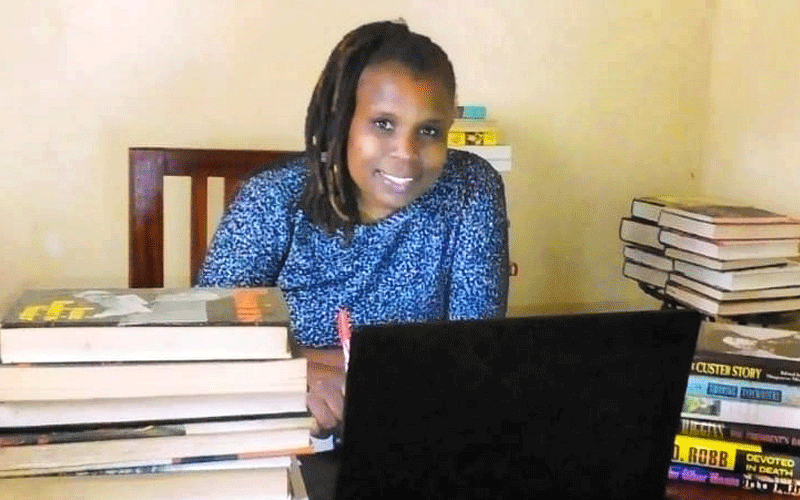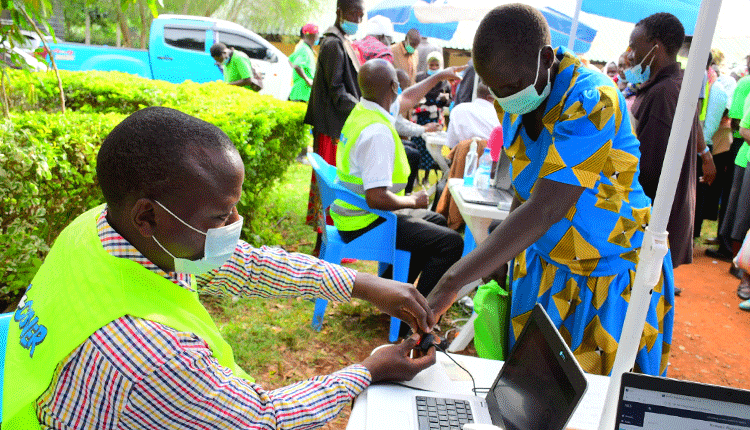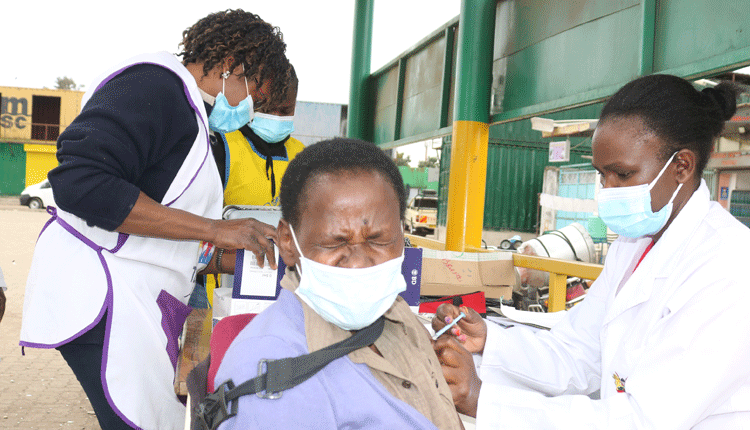Covid-19 pandemic scuttles many’s retirement plans

Retiring at the age of 50 or 60 has become a fading tradition. Now more than ever, hundreds of thousands of Kenyans have lost jobs, some barely a few months after they started working.
Harriet James @harriet86jim
Decades ago, when people got formal employment, they would work five days a week, rise through the ranks, built a life for themselves, with no worry of losing a job until they attained their retirement age of 55 years, which was later revised to 60.
The idea of retiring at this age has been tied to certain benefits. It’s the age at which individuals become eligible for their retirement benefits.
However, the tradition of retiring at 60 was already becoming uncommon prior to Covid-19 that sank the world’s economy and shattered many employees’ confidence in their ability to retire comfortably.
Many have come to the end of their work lives with no financial cushion.
Just four months ago, Kemunto Nyakundi was working as an accountant in one of the prestigious hotels.
The working conditions were great, the salary was good enough for her to save for a rainy day and also to invest.
But all these changed when the Covid-19 pandemic hit causing hotel business to shut down.
“Hotels were the most hit, especially those that depended entirely on international clients and conferencing events.
So this meant restructuring the labour force by sending a few workers home on unpaid leave,” she says.

She was sent home on unpaid leave and despite the fact that she had saved some money, it would only last her for a while.
She at first thought that the pandemic would only last for a month, but it didn’t.
Changed fortunes
One month has become four months of painful anxiety and depleting savings, and still there is no end in sight.
“I realised the pandemic was not going away soon and that it would be difficult to even start finding another job,” she narrates.
She was also in three chamas, contributing about Sh17,000 a month, but because of her depleting savings, Kemunto had to leave two.
She was lucky that at least she had created a side hustle-a wines and spirits outlet.
Then one day, a phone call from her friend who wanted quality rice, gave her a business idea and another hustle during the crisis.
Taking risks
“That’s how I started my rice business in the early days of the pandemic,” she says.
But with rice, she gained a small profit margin. She had to look for another means of gaining income.
One night while finishing up a book she was reading, she was staring at her bookshelf and felt like she had too many books. An idea came to her to declutter it by selling them.
“The next day I did a random post on Facebook on a book sale and I received mixed responses from my friends.
While some didn’t want me to sell them, majority wanted to buy and began booking the few books I had on my bookshelf,” she recalls.
With that, a new business was born and Kemunto began selling books. On the first day, she managed to sell 11 books online and a month later, she has almost sold 1,000 books.
Doing this was easier as she is an avid reader. She even opened up a page to motivate people to read. Now she buys both old and new books to sell.
“Despite what’s happening, there’s money out here and people are seeking for people who can solve their problems.
Be it in service or product delivery. This is also the time to try that business one has always thought of starting. And life is about taking risks,” she advices.
The pandemic has taught her to consider having savings plans in future when things get better.
When she was working, Kemunto was assured of receiving salary by the end of the month and sometimes she would go on out of town trips, which earned her some littler per diem.
The good thing is that she saved a little that was meant to be invested in buying land, but instead she ended up using this money for sustenance when she lost her job.
For the three years that Kemunto was in employment, about Sh1,580 would go to National Social Security Fund (NSSF).
She was hoping that by the time she retires, the money would have accumulated. But this was not to be.
Additionally, members are eligible for this benefit when they reach the age of 55 years, or when they ultimately retire from regular paid employment, something that does not favour Kemunto for now.
She has deliberately decided to live in the moment and place all her focus in building her businessKemunto is also taking this time to spend with her family.
“Sometimes we put so much effort in working for companies and when bad times come, they can’t bail us out even with the previous year’s profits.
This has taught me what truly matters,” she laments.
Last year, Caroline Kagiri received a letter of appointment to work with a local university in a foreign country. She was to set up a secondary school life skill’s programme.
Career cut short
Caroline was chosen because it was a new concept in that country and she already had experience in implementing a similar programme in Kenya at Daystar University.
It seemed like the dream career that she had always desired. “The people were and still are very receptive and ready to learn new ideas from foreigners.
While opportunities are scarce, experts are appreciated as they help drive growth,” she says.
Things were going on well until when the pandemic hit and they went for a total lockdown of about one-and-a-half month.
Her employer managed to pay just half a month salary, but it has been difficult to be paid for the rest of the months.
The fact that learning institutions have been closed made it worse.
“The company has not renewed contracts of people whose contracts came to end during the lockdown, but they have promised to review them in September.
Before the lockdown, my contract was to be renewed to a longer one,” she narrates.
Caroline was looking forward to a longer contract to join a pension scheme. But since she was on a contract, she could only save 20 per cent of her salary in her own way.
Now with the tough times, Caroline couldn’t come back home as the borders are shut and so is the air space.
Bills are piling, and her savings are depleted. She feels that at least if she manages to get back home, the burden will be lighter.
.According to the International Labour Organisation, nearly 1.6 billion jobs will be lost this year globally because of the pandemic.
In Kenya alone already, nearly 300,000 jobs have been lost and more people are continuing to get fired everyday due to hard economic times.
While being unemployed can be one of the toughest moments in life, it can become an opportunity to clear your mind.
Surviving the crisis
Financial expert Catheryn Mbugua advices that the first thing one should do is reexamine their lives and savings.
Check how long you can stay without a salary and cut your budget accordingly.
“This may include pausing gym and club memberships, cancelling online subscriptions such as Netflix, and using public transport as opposed to cabs,” she says.
One should also begin to network and search for another job even when it seems like there’s trouble everywhere.
This should be done with a positive mindset and also one should create smaller goals as this will make you have a sense of accomplishment.
“Alert your networks that you are job hunting. Browse the Internet for opportunities, learn a new skill, start a side hustle that enables you to at least find income. Above all, never give up,” she says in conclusion.










